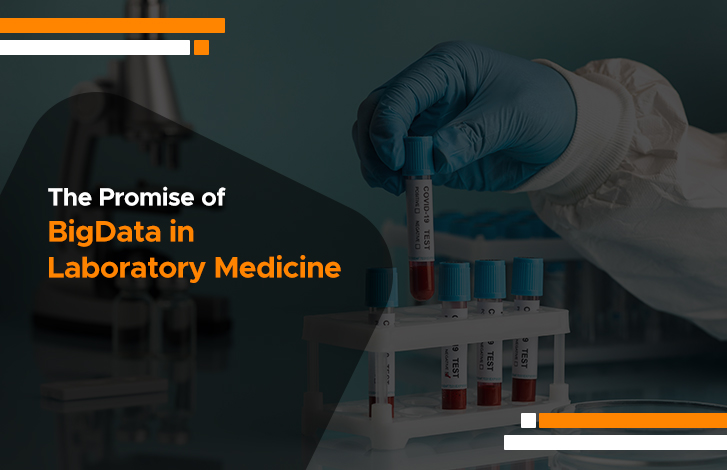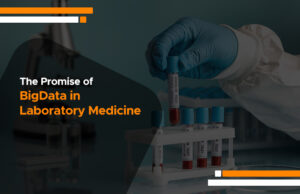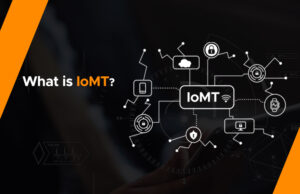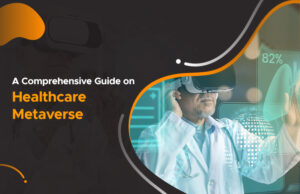In the era of advanced technology and digital transformation, big data has emerged as a game-changer in various industries, including healthcare. With its vast amount of data generated from diagnostic tests, research studies, and patient records, laboratory medicine is poised to significantly benefit from the power of big data. By harnessing this wealth of information, laboratory medicine has the potential to revolutionize healthcare delivery, improve patient outcomes, and shape the future of medicine.
The Power of Data-Driven Medicine
The advent of big data has paved the way for a new era of data-driven medicine. Traditional approaches to healthcare relied on limited datasets, often leading to fragmented insights and suboptimal decision-making. However, with the exponential growth of data in laboratory medicine, researchers and healthcare professionals now have an unprecedented opportunity to gain a more comprehensive understanding of diseases, treatment efficacy, and population health.
Collecting and analyzing large volumes of data in laboratory medicine allows for a more nuanced and personalized approach to healthcare. By leveraging big data, personalized medicine has become a reality, enabling tailored treatment plans based on a patient’s genetic makeup, clinical history, and environmental factors.
Predictive analytics, another powerful application of big data, helps identify individuals at high risk for certain diseases, enabling proactive interventions and preventive measures. Moreover, precision diagnostics, empowered by big data analytics, enable accurate and timely diagnoses, leading to better treatment outcomes and improved patient management.
Transformative Impact Of Big Data
Real-world examples demonstrate the transformative impact of big data in laboratory medicine. Genomic research initiatives, such as large-scale sequencing projects, generate vast amounts of genetic data that are instrumental in understanding the genetic basis of diseases and developing targeted therapies.
Furthermore, integrating clinical data, including electronic health records, laboratory test results, and imaging studies, allows for comprehensive patient profiles and facilitates evidence-based decision-making. These applications illustrate the immense potential of big data to drive innovation, enhance patient care, and advance scientific knowledge in laboratory medicine.
By embracing the power of big data, laboratory medicine can break through traditional barriers and revolutionize how healthcare is delivered. Analyzing large datasets in real-time enables healthcare professionals to make more informed decisions, optimize treatment strategies, and improve patient outcomes.
Besides, the insights derived from big data analytics can contribute to population health management by identifying disease trends, evaluating the effectiveness of public health interventions, and promoting preventive measures.
In the next sections, we will delve deeper into how big data is transforming laboratory medicine. We will explore its impact on disease diagnosis and treatment selection, its role in enhancing population health and epidemiology, and the ethical considerations surrounding its implementation. Join us on this exciting journey as we uncover the promise of big data in laboratory medicine and its potential to shape the future of healthcare.
Improving Disease Diagnosis and Treatment
In the realm of disease diagnosis and treatment, big data analytics holds immense promise. By leveraging vast amounts of patient data, including electronic health records, genomic information, and clinical data, healthcare professionals can develop more accurate and precise diagnostic tools. Traditional diagnostic methods often relied on limited datasets, resulting in potential misdiagnoses or delayed treatment.
However, with the power of big data, patterns, and correlations within large-scale datasets can be identified, leading to improved diagnostic accuracy and more tailored treatment approaches. Artificial intelligence (AI) and machine learning algorithms are pivotal in analyzing complex healthcare datasets. These algorithms can identify subtle patterns and relationships that may not be evident to human observers.
By training algorithms on large datasets, AI can learn to recognize specific disease markers, predict disease progression, and suggest optimal treatment options. Integrating AI and big data analytics empowers healthcare professionals with valuable insights and enhances their ability to make data-driven decisions for improved patient outcomes.
Enhancing Population Health and Epidemiology
Big data can revolutionize population health and epidemiological studies by providing a comprehensive view of health trends, risk factors, and public health interventions. Integrating diverse datasets, such as laboratory results, electronic health records, and social determinants of health, allows for a more holistic understanding of population health dynamics.
When combined and analyzed using advanced data analytics techniques, these datasets can uncover hidden correlations and associations that contribute to disease spread, identify at-risk populations, and inform targeted interventions. One of the key advantages of big data in population health is the potential for early detection and prevention of diseases.
By analyzing population-level data, healthcare systems can identify emerging disease trends and proactively implement preventive measures. For example, monitoring laboratory test results and environmental and demographic data patterns can help identify regions at risk for disease outbreaks and allocate resources accordingly.
Additionally, analyzing social determinants of health, such as socioeconomic status and access to healthcare, can inform public health interventions to reduce health disparities and promote equitable healthcare delivery. By harnessing the power of big data in population health and epidemiology, healthcare organizations and policymakers can make informed decisions to improve public health outcomes.
The insights gained from data analysis enable the development of evidence-based interventions, resource allocation strategies, and targeted public health campaigns. Ultimately, this data-driven approach has the potential not only to mitigate the impact of existing diseases but also to prevent future outbreaks and promote overall population well-being.
Ethical Considerations and Data Privacy
As we delve into the realm of big data in laboratory medicine, it is crucial to address the ethical considerations and data privacy concerns that arise. While big data holds immense potential for healthcare advancements, we must navigate this territory responsibly and ethically.
Safeguarding patient privacy and ensuring data security is paramount. Strict protocols must be in place to protect sensitive patient information, adhering to regulatory guidelines and industry best practices. Transparency in data collection and analysis is equally important, as patients should clearly understand how their data is being used and the potential impact on their privacy.
Ethical practices encompass not only protecting patient rights but also maintaining public trust. Robust governance frameworks should be established to govern data collection, storage, and utilization. Regulatory guidelines must keep pace with the evolving landscape of big data in laboratory medicine, ensuring that patient interests are safeguarded, and ethical boundaries are respected.
Conclusion
In conclusion, the promise of big data in laboratory medicine is immense. By harnessing the power of data, we have the potential to revolutionize healthcare, improve patient outcomes, and advance scientific knowledge. However, a commitment to moral standards and data privacy must guide this transformation.
Continued investment in data infrastructure, analytics capabilities, and stakeholder collaboration is essential to fully realizing the benefits of big data in laboratory medicine. By working together, researchers, healthcare providers, policymakers, and patients can shape a future where big data-driven insights lead to more accurate diagnoses, personalized treatments, and proactive preventive care.
Let us embrace big data’s possibilities while upholding the highest ethical standards. With responsible practices and a commitment to patient privacy, we can unlock the full potential of big data in laboratory medicine and usher in a new era of healthcare excellence.







